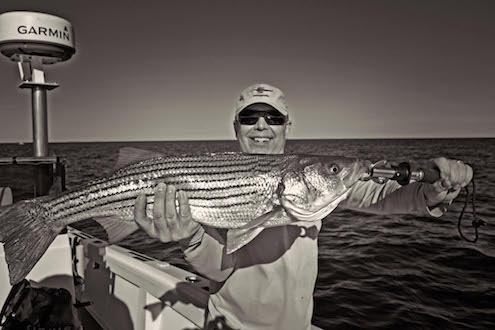RETHINKING BLUEFISH MANAGEMENT
 Thursday, August 6, 2015 at 12:00AM
Thursday, August 6, 2015 at 12:00AM 
A new benchmark stock assessment for bluefish has just been completed. The assessment is so new that the entire document is not yet available, although a summary has been posted onthe Northeast Fisheries Science Center’s website.
However, even the summary confirms something that anglers and fisheries managers have both known for years.
Bluefish are predominantly a recreationally caught species, with recreational harvest making up approximately 80% of total removals in recent years.
LINK (via: One Anglers Voyage)
 blue fish,
blue fish,  fish management,
fish management,  one anglers voyage in
one anglers voyage in  Species
Species 









